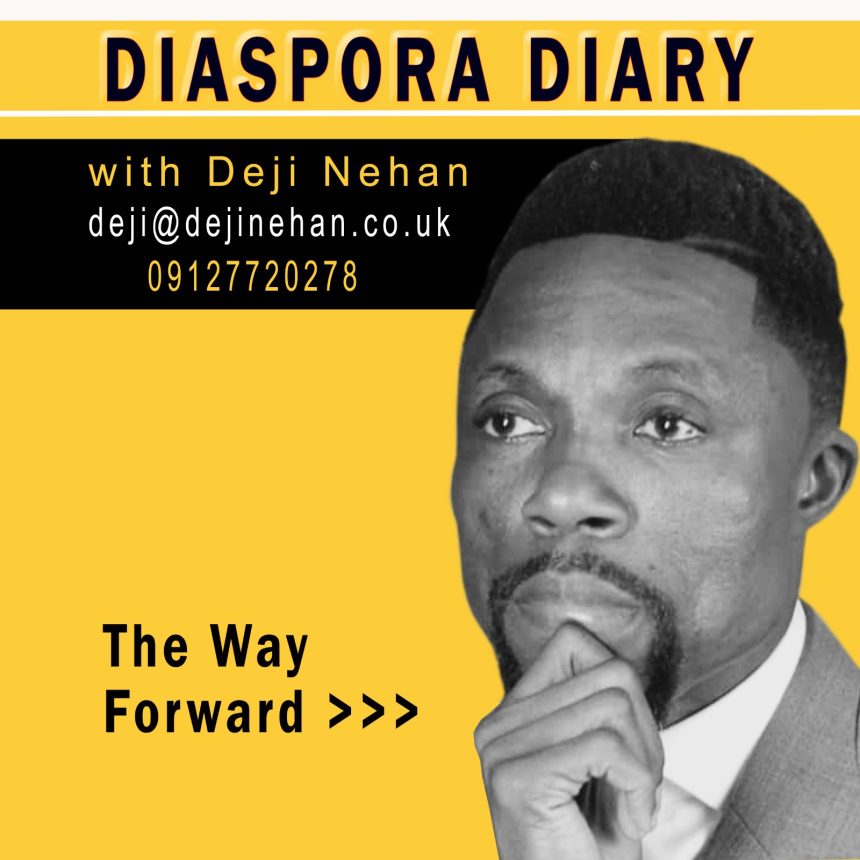Sixty-five years after independence, Nigeria stands at a crossroads, one paved with resilience, rich cultural heritage, and untapped potential. For Nigerians in the diaspora, this milestone is not just a marker of time but a mirror reflecting both the progress made and the promises yet to be fulfilled. It’s a moment to ask: What does progress truly mean to those who live outside the borders but remain tethered by love, memory, and hope?
The Diaspora Lens: A Dual Reality
To be Nigerian abroad is to live in duality. It is to celebrate the vibrancy of Nollywood and Afrobeats while lamenting the state of public infrastructure back home. It is to send remittances that sustain families and communities, while wondering if those funds could someday build schools, clinics, and startups. It is to be deeply proud of one’s roots, yet painfully aware of the systemic challenges that push talent outward.
The diaspora dreams not just of a better Nigeria, but of a Nigeria that welcomes them back, not just for weddings and holidays, but for investment, innovation, and impact.
Renewed Hope: A Promise Worth Holding
The current administration’s “Renewed Hope” agenda offers a framework for rebuilding trust and reimagining national development, which economic revitalization, infrastructure renewal, social inclusion, and governance reform, speak directly to the diaspora’s long-standing concerns.
But hope, to be meaningful, must be matched with mechanisms for engagement. The diaspora is not a monolith, it includes tech entrepreneurs in Silicon Valley, nurses in London, academics in Johannesburg, and traders in Dubai. Their needs and capacities vary, but their desire to contribute is constant.
READ ALSO: Thoughtful ideas for your customer service week
Hiccups on the Road to Progress
Despite the rhetoric of inclusion, several barriers persist:
Policy inconsistency: Shifting regulations around foreign investment, dual citizenship, and property rights create uncertainty.
Limited diaspora representation: While diaspora commissions exist, they often lack the teeth or funding to drive real change.
Infrastructure gaps: Poor roads, unreliable power, and digital limitations hinder diaspora-led projects.
Trust deficit: Corruption and opaque governance erode confidence in public institutions.
These challenges are not new, but they are urgent. The diaspora cannot be expected to invest emotionally or financially in a system that does not reciprocate transparency and accountability.
At 65, Nigeria is neither young nor old. It is seasoned. It has known joy and pain, triumph and tragedy.
Signs of Progress: Seeds Worth Watering
There are green shoots that represent the progressive impact:
Diaspora bonds and remittance platforms have improved financial flows and transparency.
Tech hubs in Lagos, Abuja, and Port Harcourt are increasingly powered by diaspora mentorship and capital.
Diaspora-led NGOs and social enterprises are filling gaps in education, health, and housing.
Cultural diplomacy, through music, fashion, and film is reshaping Nigeria’s global image.
These are not just anecdotes; they are indicators of what’s possible when the diaspora is treated as a strategic partner, not just a sentimental stakeholder.
All Hands on Deck: A Call to Action
The theme of Nigeria’s 65th Independence “All Hands-on Deck for a Greater Nation” is more than a slogan. It is a blueprint for inclusive development. Here’s how the diaspora can be meaningfully engaged:
Policy Co-Creation
Diaspora voices must be included in shaping policies that affect them, from investment incentives to voting rights. Virtual town halls, diaspora advisory councils, and consultative platforms can bridge the gap.
Diaspora Investment Corridors
Create sector-specific pathways for diaspora investment in agriculture, renewable energy, housing, and education. These should include risk mitigation tools, fast-track approvals, and public-private partnerships.
Faith-Based and Cultural Networks
Churches, mosques, and cultural associations abroad are powerful mobilizers. Government and civil society should partner with them to disseminate information, build trust, and co-create development initiatives.
Youth and Talent Exchange
Launch programmes that allow diaspora youth to intern, volunteer, or work in Nigeria. This builds emotional connection and professional networks that can lead to long-term engagement.
Diaspora Data Infrastructure
A centralized, secure database of diaspora professionals, investors, and organisations can help match skills to national needs. This should be dynamic, inclusive, and accessible.
The Dream of Home: Beyond Nostalgia
For many in the diaspora, the dream of Nigeria is not just about returning, it’s about relevance. It’s about being able to shape the future of a country that shaped them. It’s about seeing their children speak Yoruba, Igbo, or Hausa with pride. It’s about investing in a school and knowing the funds won’t vanish. It’s about building a house and not worrying about land disputes. It’s about being part of a story that is still being written.
Towards a Diaspora-Inclusive Future
As Nigeria charts its path forward, it must recognize that the diaspora is not an appendage, it is an artery. It carries ideas, capital, and credibility. It is a living bridge between Nigeria and the world. And like any bridge, it must be maintained, respected, and used wisely.
The Renewed Hope agenda must evolve into a Renewed Partnership, one that sees the diaspora not just as donors, but as co-authors of Nigeria’s development narrative.
Final Thoughts
At 65, Nigeria is neither young nor old. It is seasoned. It has known joy and pain, triumph and tragedy. But it is still becoming. And in that becoming, the diaspora has a role to play, not just in dreaming, but in doing.
So, what does the diaspora still dream of?
A Nigeria that listens. A Nigeria that includes. A Nigeria that works.
And above all, a Nigeria that welcomes them, not just with open arms, but with open systems.














